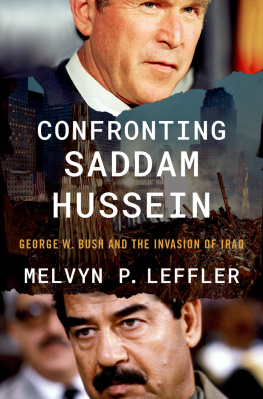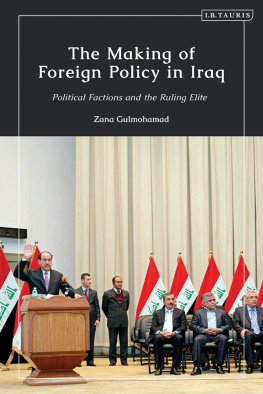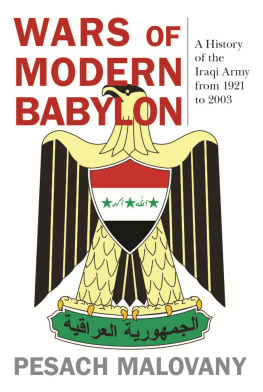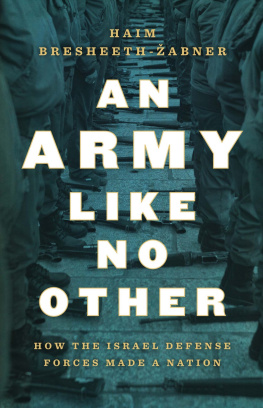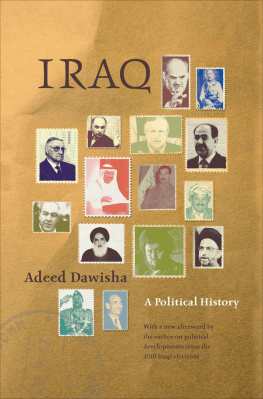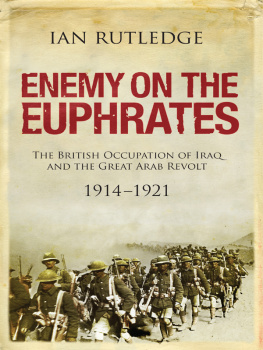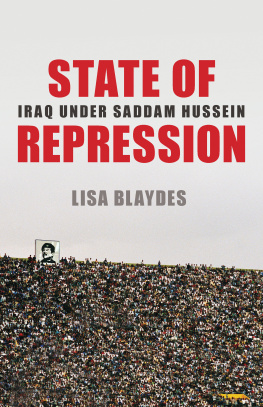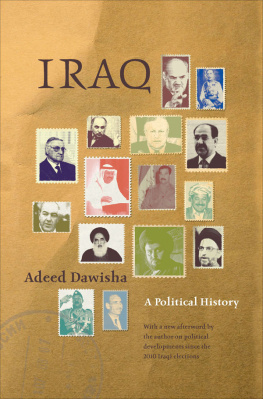IRAQ BETWEEN THE TWO WORLD WARS
IRAQ
BETWEEN THE TWO WORLD WARS
The Militarist Origins of Tyranny
Updated Edition
REEVA SPECTOR SIMON
Columbia University Press New York

Publishers Since 1893
New York, Chichester, West Sussex
cup.columbia.edu
Copyright 1986 Columbia University Press
New material copyright 2004 by Reeva Spector Simon
All rights Reserved
E-ISBN 978-0-231-50700-4
Library of Congress Cataloging-in-Publication Data
Simon, Reeva S.
Iraq between the two world wars :
the militarist origins of tyranny /
Reeva Spector Simon.Updated ed.
p. cm.
Includes bibliographical references (p. ) and index.
ISBN 023113214X (cloth : alk. paper)
ISBN 0231132158 (pbk. : alk. paper)
1. IraqHistoryHashemite Kingdom, 19211958.
2. IraqArmed ForcesPolitical activity.
3. NationalismIraqHistory.
I. Title
DS79.S57 2004
956.704dc22 2003070003
A Columbia University Press E-book.
CUP would be pleased to hear about your reading experience with this e-book at .
References to Internet Web Sites (URLs) were accurate at the time of writing. Neither the author nor Columbia University Press is responsible for Web sites that may have expired or changed since the articles were prepared
For Sheldon
CONTENTS
ACKNOWLEDGMENTS
It is customary and I am pleased to have the opportunity to express my gratitude to those who have contributed toward making this book possible. I wish to thank Professor Arnold Blumberg for transmitting his exuberance for the study of history; Professor Irene Gendzier for introducing the perplexities of the history of the Middle East; and Professor Elie Kedourie for presenting the intricacies of modern Iraqi history.
I have received generous assistance from a number of librarians and institutions. The staff of the Public Record Office in England, Mr. John Taylor and Mr. Frederick Pernell of the United States National Archives facilitated research while Dr. George N. Atiyeh of the United States Library of Congress, and Rev. Joseph A. Devenny, S.J. of the Weston School of Theology made otherwise inaccessible Arabic materials available to me.
I appreciate the invaluable services of the Columbia University Libraries, most especially the Interlibrary Loan Department, and the support I received from the Middle East Institute.
I am grateful for the constructive criticism contributed by professors Istvan Dak, J.C. Hurewitz, Ergun Osbudun, and Michael Stanislawski, and by Philip Mattar and Muhammad Muslih who read the original manuscript. I am most indebted to Professor Richard W. Bulliet for his continuous encouragement and to Professor Phebe A. Marr for her unceasing support and interest in my work. Of course, the views expressed herein are solely my own. It was a pleasure working with editors Kate Wittenberg and Joan McQuary of Columbia University Press on the first edition and with Peter Dimock, Anne Routon, and Leslie Bialler this time. Finally, my thanks to my parents, to Sheldon, and to Miriam, Benjamin, and Ezra without whose patience this work never could have been attempted.
Transliteration
I have generally followed a modified transliteration system based on that of the International Journal of Middle East Studies, but which omits macrons and diacritical marks for velarized consonants and identifies the ayn only. Geographical names reflect current American usage.
Reeva Spector Simon
September 2003
This is a book of historical interpretation. As such, it seeks to answer the question: Why did a group of army officers, who had seized control of the government of Iraq in 1941, proceed to wage a disastrously futile war against Great Britain? Why did these officers reject the British and liberal democratic values, turning instead to a militaristic Germany, whose political ideology stood at the extreme edge of Romantic nationalism? What was their legacy for the future?
On the surface, the answer seems obvious. As a victor in World War I, although responsible for the creation of the modern state of Iraq, Britain, in consort with France, was instrumental in dividing up the Arab areas of the former Ottoman Empire and of occupying Iraq. The officers, educated in Istanbul and returning to Iraq to play a leading role in the new state, were first and foremost Sunni pan-Arab nationalists, dreaming of the unity of an Arab nation encompassing the Fertile Crescent and Arabia. For them, the situation was intolerable and smacked of betrayal by the same politicians in Whitehall who were ostensibly leading Iraq to full independence. For while the faade of independence and of political democracy existed, the British exerted control in the backgroundthrough the Embassy where the British ambassador reigned primus inter pares and via a covey of British advisors who were directly involved in areas from political administration to landholding adjudication and the suppression of tribal revolts. The reality was that Iraq was only nominally independent, so when the opportunity arose and the British Empire seemed about to be overrun by the Axis powers in 1941, the Iraqis turned to Germany. The enemy of the enemy is a friend.
But why Germany? Why not Japan or Italy? To students in non-Western countries Japan was the paradigm, admired as a state that industrialized and modernized in a remarkably short period of time and then actually defeated a Western power in the Russo-Japanese War of 1905. Japanese commercial and diplomatic ties with Iraq did increase during the 1930s. At the same time, there was also a direct connection to Rome through the Italian Legation in Baghdad, which became the conduit for funds to pro-Axis Iraqis; but the Italians were suspect because of Mussolinis designs on North Africa, Ethiopia, and parts farther east.
That left Germany, not by default, but because there were links to Germany that went back to the turn of the twentieth century, associations which, despite Germanys later adoption of National Socialism, were reactivated in the 1930s. To be sure, there were pro-Nazi Iraqis, but the army officers who turned to Germany were not Nazis. Indeed, they tended to overlook the racial ideology that placed them one step above the Jews and looked instead to those areas of compatibility they had formed with the Germany of Wilhelm II when German ideas, especially cultural nationalism, reached them in Istanbul, at the military schools where the Iraqi officers received their first taste of Westernization at the hands of German military officers.
There, they imbibed the burgeoning nationalist philosophies while studying military maneuvers and tactics. A non-Turkish minority in the new Young Turk exclusively Turkish state, the Arab officers in the Ottoman army adapted the German example of unification of diverse elements into a nation based on a common language and history. When they returned home, to a newly created Iraqi state, this was the world view they transmitted through the schools and, as military officers, through the army, finally turning to Germany for arms and advice in an abortive first step to evict the occupier and reunite the Arab nation.
Education, therefore, as the means for the transmission of cultural values and political ideas, is the key to analyzing the reasons for the German-Iraqi link in 1941, which, in essence, is the culmination of a process that began before World War I, continued during the turbulence in Iraq in the 1930s, and ended with the defeat in May 1941. This story of the creation of a political ideology, of how it was implemented and inculcated in Iraq, and how the realization of those political goals was attempted in 1941 is also the prelude to a political continuum that ultimately led to the imposition of the Bath regime and the rule of Saddam Hussein.
Next page

